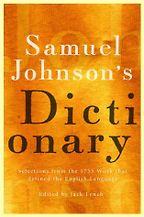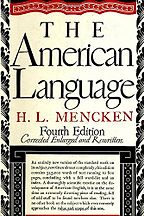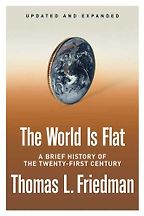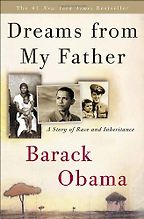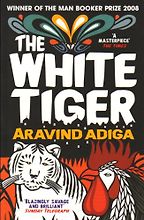What I want to do with these books is to describe the three stages of the evolution of the English language. The first is a British stage, the second is American and then we move on to is what I am calling the globish stage, which is the 21st-century stage, and that is the phase in which English, or globish as I call it, is being used internationally as a default position.
Tell me about your first choice, Samuel Johnson’s Dictionary.
This was first published in 1775 and is among the most influential dictionaries in the English language. I think it is very important because it is an example of English being analysed by someone who treats it as a language of common sense and a language of the ordinary man and woman. And what was amazing is that he wrote this dictionary all by himself apart from the amateur assistance of a few hired hands.
And he wrote some really witty entries. For example, he defined ‘lexicographer’ as ‘a writer of dictionaries, a harmless drudge’, and for ‘oats’ he put ‘a grain which in England is generally given to horses, but in Scotland supports the people’!
So I see this as a real milestone. It is first time that a language has been defined, not in academic terms or university terms, but instead by one individual living in Fleet Street and using language in a very practical way. It’s a real touchstone of the English language.
Let’s move on to The American Language by H L Mencken.
This is a marvellous book by someone I really idolise. H L Mencken was a terrific journalist flourishing in the 1920s. He wrote for the Baltimore Morning Herald – he was known as the ‘Sage of Baltimore’ – and was very combative and polemical. He saw his job as making trouble as a columnist but in his spare time he was a passionate advocate of what he called the American language. He wrote the book to clarify the discrepancies between British and American English and to define the distinguishing characteristics of American English.
In his own way he was as much a nationalist about his language as Johnson was in the 18th century. So they are a kind of pair. His book describes how American English evolved after the Revolution into the way it was in 1920. He saw it as being an international force. Although one of his friends was the English broadcaster Alistair Cooke, he was fairly anti-British and saw the evolution of the American language as a way of defining the nation´s identity. He was very pro what at the time was seen as slang. He thought that was a cause of celebration.
His study is undoubtedly the most scientific linguistic work on the American language to date and continues to serve as a definitive resource in the field.
The World Is Flat by Thomas Friedman moves us into the third stage of the English language, which you call globish.
Yes, this book inspired some of the ideas in my book. Although it is at times a bombastic account of the global economy. It describes how one of the biggest changes that took place in the 1990s and in the last ten years was when the big global market took off on a colossal scale. Globalised English had become this extraordinary means of international communication. He explains what the flattening means to countries, companies, communities, and individuals; and how governments and societies can, and must, adapt.
This book isn’t particularly well written but it is fizzing with good ideas. ‘The world is flat’ means that it is a level playing field and if you are in India or China you have as many opportunities as you would have if you were in Manchester or Detroit. We are all connected through the internet and all have the same opportunities.
Do you think that English will continue to be the global language despite what is happening in China?
I think that they will co-exist. There will obviously always be people who want to learn Mandarin because China is such a big player. But the interesting thing about China is that it shows no signs of wanting to break outside of itself. If you follow the relations between the Chinese and Google, their response to Google was to behave like a mollusc and to withdraw into themselves defensively. And that is what historically they have done in the past when they saw themselves as the centre of the earth with anyone on the outside referred to as a barbarian.
On the other hand, you have the Chinese middle class who are desperate to learn English because they want to go to American universities, so you have this tension between them standing apart and wanting to get involved. By the way, I should make it clear, I love the Chinese – they are really good fun and feisty but they are being forced to make an accommodation with globish because that is the dominant language.
For example, if a Chinese, a Korean, a Brazilian and a Nigerian meet in a trade fair anywhere in the world, the default position is bound to be globish and this is a comparatively new phenomenon. Twenty or 30 years ago there would have been an attempt to use French or Spanish but that has all gone now.
For native English speakers it is not necessarily something you would recognise as your own language but the point about it is that, although it is imperfect and rough and ready, it does work. When I was growing up, say 20 years ago, and you went to France and attempted to use your pathetic French they would respond in French, albeit reluctantly. Now you go to Paris and start with your pathetic French and they immediately respond in English.
Tell me why you have chosen Dreams From My Father by Barack Obama.
He is really is a globish president and a brilliant writer. He is of Kenyan origin, grew up in Kansas and Hawaii. His reference is America, Kenyan tribal customs, Indonesia. All of these are explored in his book which finally takes him to Kenya to track down his father’s family and to find out what the man who his white mother talked about so much was actually like.
And I think Obama really is a global citizen who says he has a special relationship with the English. But at the same time he can say the same thing to India and the Chinese and it will sound authentic in a way it never would if Gordon Brown or David Cameron said it. I was writing my book during his campaign and he really is a case in point of what I am talking about.
Now the power is east to west where as in the old days it really was north to south. And Obama is fine with that as he is able to operate in any situation because of his roots which he so vividly writes about in this book.
Your final book is The White Tiger by Aravind Adiga.
This book won the Man Booker prize and I think it is a wonderful book which is written in this very gripping Indian English. It is very high octane. Here is someone who has taken this phenomenon of the liberation of English into the global arena and turned it into literature. He is Indian, highly educated and a very good writer and he has taken a what can be sometimes incomprehensible global form of English and transformed it.
It is all about Balram Halwai, the ‘white tiger’. Born into an impoverished family, Balram is removed from school by his parents in order to earn money in a thankless job: shop employee. He is forced into banal, mind-numbing work. But Balram dreams of escaping – and a chance arises when a well-heeled village landlord takes him on as a chauffeur for his son (although the duties involve transporting the latter’s wife and two Pomeranian dogs). From the rich new perspective offered to him in this more interesting job, Balram discovers New Delhi, and a vision of the city changes his life forever. His learning curve is very steep, and he quickly comes to believe that the way to the top is by the most expedient means. And if that involves committing the odd crime of violence, he persuades himself that this is what successful people must do.
It is very fresh, very vigorous, doesn’t take itself too seriously and completely characterises what I think are the very qualities of the English language.
October 7, 2010. Updated: August 23, 2024
Five Books aims to keep its book recommendations and interviews up to date. If you are the interviewee and would like to update your choice of books (or even just what you say about them) please email us at [email protected]
Five Books interviews are expensive to produce. If you've enjoyed this interview, please support us by donating a small amount.
